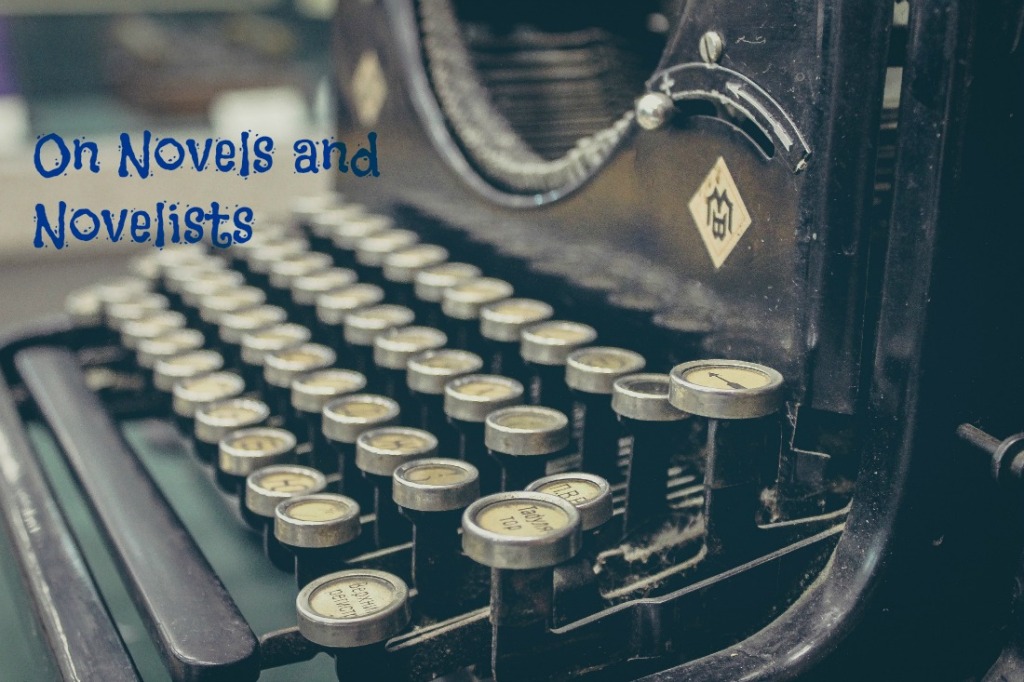10 Famous Authors’ Favorite TV Shows
In an era when it’s impossible to open a web browser without stumbling across another “Is television the new novel?” piece, we couldn’t help but wonder, Carrie Bradshaw-style, just what our favorite writers watch in their spare time.
See what shows the following authors like:
- Zadie Smith
- S.E. Hinton
- Lorrie Moore
- Stephen King
- Bret Easton Ellis
- Salman Rushdie
- Roxane Gay
- Neil Gaiman
- Margaret Atwood
- Joyce Carol Oates
And since not all of these writers are from the U.S., here’s an opportunity to learn about some television shows you may not know.
What Ray Bradbury’s FBI File Teaches Us About Science Fiction’s Latest Controversies
Separate FOIA [Freedom of Information Act] requests by the Daily Beast and MuckRock unearthed Bradbury’s files in 2012. Though they received some coverage at the time, Boing Boing, the Register, and MuckRock have discussed the documents this week, focusing to their charming anachronisms and other period peculiarities. Ultimately, however, those documents stand out most for what they reveal about the state of science fiction today.
Jacob Brogan here takes a quick look at what informants had to tell the FBI about Bradbury and his writings back in the 1950s and 1960s. Despite fears that science fiction might become “a lucrative field for the introduction of Communist ideologies,” Brogan asserts that Bradbury’s popular success was not driven by any ideology, “a communist one least of all.” Instead, Brogan writes, science fiction has always been about looking at what’s wrong with the world and imagining how to make it better.
“Science fiction’s latest controversies” referred to in the article’s title involve division in the ranks of science fiction writers and award judges, some of whom see “an elitist wave of liberal propaganda” overtaking the genre. This article includes lots of links to more material about these controversies on the web for those who wish to delve further into the issues.
But, Brogan reminds us, the FBI documents pertaining to Ray Bradbury are
important reminders that science fiction invites us to see and think in new ways. It’s not always ideologically inclined, but it has rarely strayed far from the political.
Ursula K. Le Guin on myths, Modernism and why “I’m a little bit suspicious of the MFA program”
Here Scott Timberg talks with Le Guin, a grand dame of both science fiction and fantasy, about her newly issued book on writing, Steering the Craft: A 21st Century Guide to Sailing the Sea of Story. A significantly revised version of a work originally published in 1998, this book, Timberg says, “is not something any aspiring fiction writer should ignore.”
Steering the Craft originated in a workshop about the nuts and bolts of writing that Le Guin conducted for writers in the 1990s. She said that a lot of writers didn’t “have the vocabulary of the very elements of [their] work – which is how the English language is put together, and what constitutes a sentence and a non-sentence and so on.”
Read the rest of the interview—it’s short—to find out why she thinks writers should read the work of Virginia Woolf and why she is “a little bit suspicious of the MFA program” as a way for writers to practice their craft.
Why Knopf Editor in Chief Sonny Mehta Still Has the “Best Job in the World”
OK, Sonny Mehta is not a novelist, but as editor in chief of the Knopf publishing house, he’s deep into the world of books and writers.
In this short piece Dave Eggers profiles Mehta, for whom “the unique delight in discovering a great unpublished work hasn’t diminished.”

